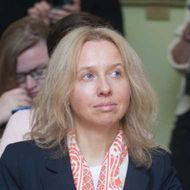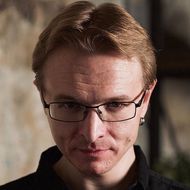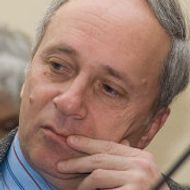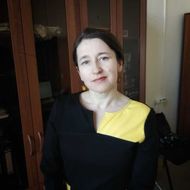- A
- A
- A
- ABC
- ABC
- ABC
- А
- А
- А
- А
- А
105066 Moscow, Staraya Basmannaya 21/4, building 3
Phone: +7 (495) 772 95 90 *22858
The HSE School of History was established in 2015 on the basis of the HSE faculty of history. The School's staff brings together leading scientists in various fields of historical knowledge who are widely known and respected in Russia and the international academic community. The School’s instructors are leading historians are authors of numerous books and articles, regular participants in major international scientific forums and research projects, and are also known as popularizers of historical knowledge. The HSE School of History actively cooperates with leading foreign universities and research centers, and organizes international scientific conferences, symposia, and colloquiums.
 Russian Faith, Honour, & Courage Displayed in a Faithfull Narrative of the Russian Expedition by Sea (1769 & 1770)
Russian Faith, Honour, & Courage Displayed in a Faithfull Narrative of the Russian Expedition by Sea (1769 & 1770)
Leikin J., Elena Smilianskaia.
NY: Boydell and Brewer Ltd, 2024.
Russian Review. 2025. Vol. 84. No. 1. P. 88-102.
Sergey V. Kostelyanets.
In bk.: BRICS and Climate Change: Balancing National Interests, National Development Goals and Global Environmental Sustainability. Singapore: Springer, 2024. Ch. 3. P. 67-96.
Kolesnik A., Rusanov A.
Working Papers of Humanities. WP. Издательский дом НИУ ВШЭ, 2021. No. 205.
Research & Expertise – News









- About
- About
- Key Figures & Facts
- Sustainability at HSE University
- Faculties & Departments
- International Partnerships
- Faculty & Staff
- HSE Buildings
- Public Enquiries
- Studies
- Admissions
- Programme Catalogue
- Undergraduate
- Graduate
- Exchange Programmes
- Summer Schools
- Semester in Moscow
- Business Internship
-
https://elearning.hse.ru/en/mooc/
Massive Open Online Courses
-
https://www.hse.ru/en/visual/
HSE Site for the Visually Impaired
-
http://5top100.com/
Russian Academic Excellence Project 5-100
- © HSE University 1993–2025 Contacts Copyright Privacy Policy Site Map
- Edit



